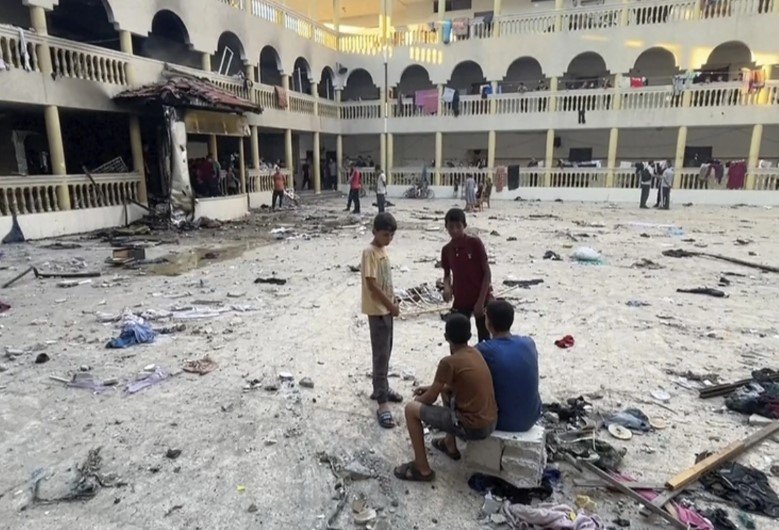Efforts to restore peace between Hamas and Israel have faltered once again as recent ceasefire talks in Cairo ended without progress, underscoring the deep divides between the two sides.
The latest round of discussions aimed at resolving the ongoing conflict, which has led to immense loss of life and suffering, failed to yield a breakthrough. A major sticking point remains Hamas’ demand for a cessation of hostilities, which contrasts sharply with Israel’s insistence on continued military operations until Hamas is defeated.
Core Demands and Stubborn Stalemates
At the heart of the discussions, Hamas has held firm to its position that any agreement must lead to an end of the current conflict. This would involve halting Israeli airstrikes and military operations that have ravaged the Gaza Strip since the collapse of a temporary ceasefire in January 2025. According to Reuters, citing both Palestinian and Egyptian sources, the Palestinian delegation has maintained this hardline stance despite pressure from international actors for a more flexible approach.
In contrast, Israel remains resolute in its approach. The Israeli government, which resumed its military campaign in Gaza after the ceasefire collapsed, has stated that it will not stop its military operations until Hamas is decisively defeated. The Israeli Defense Forces (IDF) argue that Hamas must be neutralized as a threat before any meaningful peace can be achieved.
“Israel’s position remains clear: no ceasefire without the dismantling of Hamas,” an Israeli official remarked on condition of anonymity.

Hamas Willing to Negotiate Hostage Release
Despite the deepening impasse over the main issue of a ceasefire, there were some signs of flexibility from Hamas, particularly regarding the humanitarian aspect of the conflict. Sources indicated that Khalil Al-Hayya, the leader of the Hamas delegation in Cairo, showed a willingness to discuss the release of Israeli hostages.
As part of the ongoing negotiations, a potential proposal has emerged where Hamas would agree to free an increased number of hostages in exchange for Palestinian prisoners held by Israel. While the specifics of such a deal remain unclear, it has provided a glimmer of hope that some form of compromise could be found in the future.
The hostages held by Hamas remain a major point of contention, with Israel pushing for their immediate and unconditional release as a sign of goodwill. However, Hamas has repeatedly linked the fate of the hostages to the broader political demands surrounding the ceasefire.
The Role of Egypt and Regional Diplomacy
Egypt, a long-standing mediator in the Israeli-Palestinian conflict, has taken a prominent role in facilitating these negotiations. As the host of the talks, Egypt has sought to balance the demands of both sides while navigating the complex regional dynamics.
Sources close to the Egyptian government say that Cairo is pressing both parties to find a middle ground. “The priority is to secure an extension of the truce,” an Egyptian official stated. “This could serve as the first step toward a broader resolution. But both sides are deeply entrenched in their positions.”
Despite the breakdown in talks, Egypt’s involvement remains crucial. Cairo continues to push for a reduction in hostilities as the first step toward securing broader peace negotiations. However, without a significant shift in the positions of Hamas and Israel, the road to a durable ceasefire remains unclear.
The Humanitarian Impact: Destruction and Displacement
As the talks stalled, the humanitarian situation in Gaza continues to deteriorate. The latest reports from the region reveal widespread devastation in towns and villages affected by the ongoing fighting. The death toll has been rising steadily, with many civilians caught in the crossfire.
In Jabalia, northern Gaza, a recent Israeli airstrike destroyed a house, burying several people under the rubble. Rescuers continue to sift through the debris in search of survivors, but the task grows harder with each passing day. Meanwhile, in Israel, the constant barrage of rockets from Gaza has led to widespread panic and casualties, with civilian areas in southern Israel bearing the brunt of the attacks.
These tragic events underscore the importance of reaching a ceasefire agreement. However, as talks in Cairo have shown, both sides remain far apart on how to achieve such an agreement.
Diplomatic Prospects: What Lies Ahead?
While the collapse of the Cairo talks is a setback, it is unlikely to be the final word in the ongoing negotiations. International pressure on both Hamas and Israel to de-escalate the situation will likely continue to build, especially as the human toll mounts on both sides.
The international community, including the United Nations, the United States, and the European Union, has called for an immediate end to the violence. However, it remains unclear whether this will be enough to push either side to soften their positions.
In the coming days, we may see renewed diplomatic efforts to resolve the crisis. But until Hamas and Israel find common ground on their core demands, the prospect of lasting peace seems remote.
